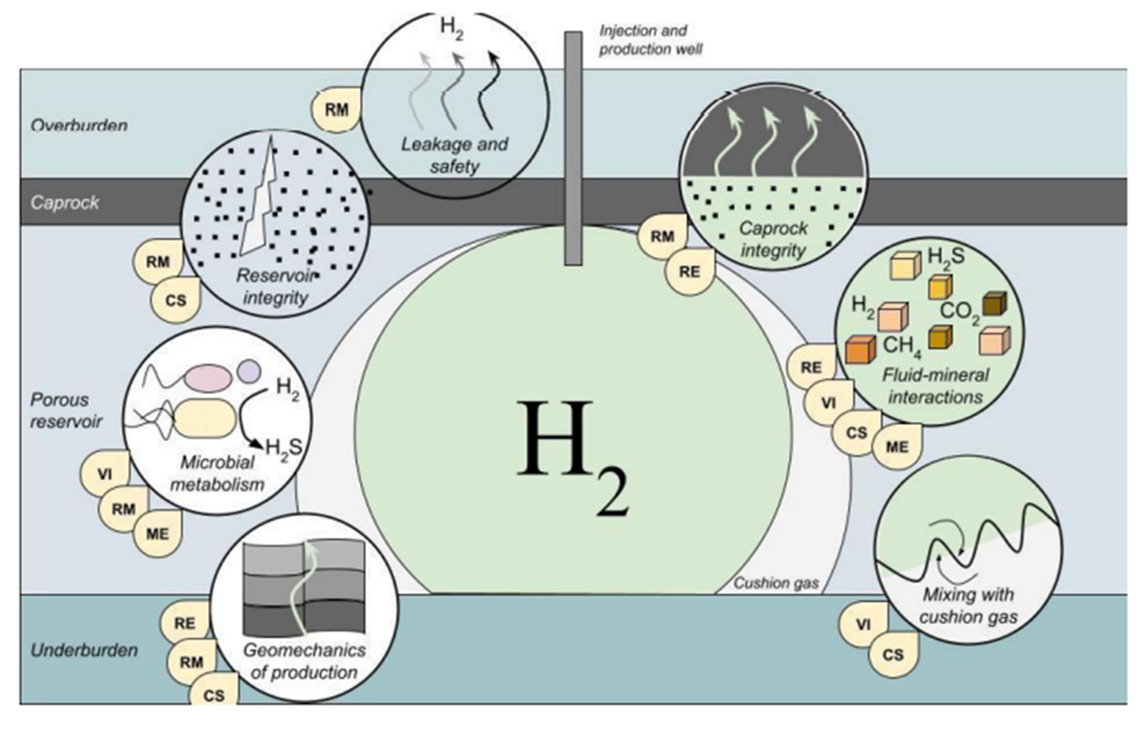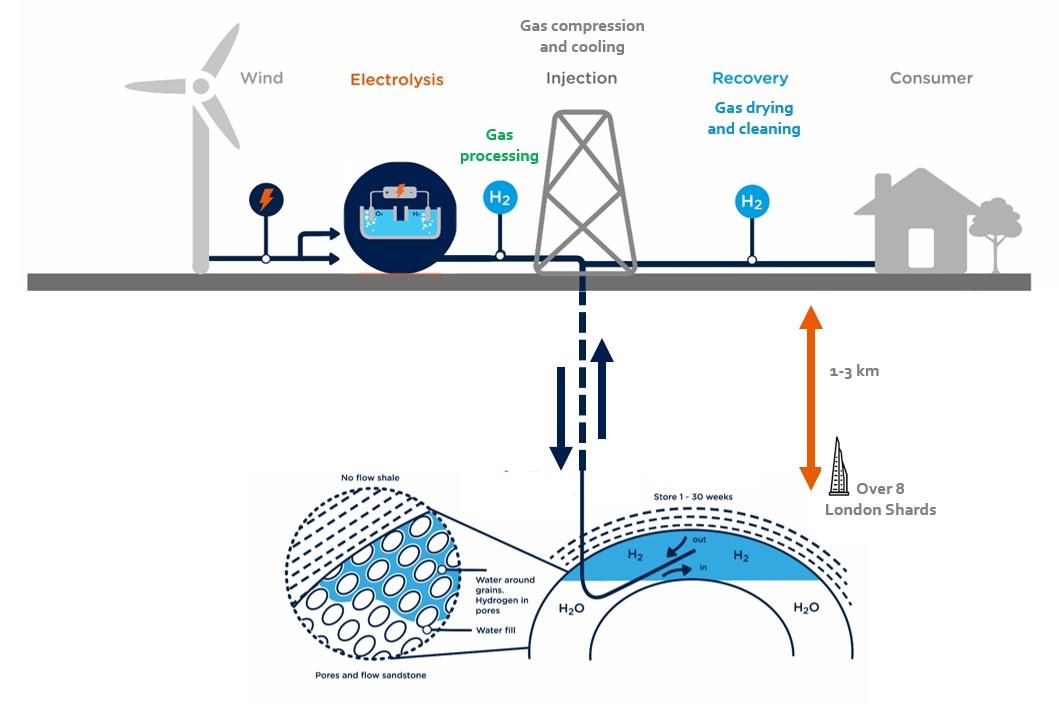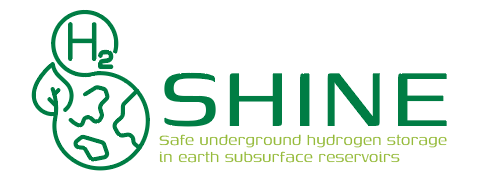
Safe underground Hydrogen storage IN Earth subsurface reservoirs

Hydrogen is expected to play a key role in a future climate-neutral economy, enabling emission-free transport, heating and industrial processes as well as inter-seasonal energy storage. It is anticipated there will be a requirement for TW scale storage with discharge durations of many months, which can only be delivered by underground hydrogen storage in porous reservoirs.
SHINE will investigate the hydrogen/rock/pore fluid processes with the aim to assess the feasibility of subsurface hydrogen storage technologies within porous reservoirs, through 10 cutting edge research and training projects at doctoral level spanning from microbiology to geochemistry, geophysics, fluid dynamics, and geomechanics monitoring using laboratory, computational and in situ approaches.
The main research objectives of SHINE centres around the scientific challenges associated with hydrogen storage in subsurface porous media, namely exploring fluid, rock and microbial interactions, characterization and integrity of the reservoir/caprock and safety and monitoring of subsurface porous storage.
SHINE mission is to provide high-level training in the field of subsurface hydrogen storage technologies to produce a new generation of high achieving doctoral researchers skilled in a variety of innovative technologies necessary to support the low carbon energy transition. It aims to recruit 10 international Doctoral Candidates (DCs) to be assigned to a specific PhD course/doctoral project, to be monitored and supervised in their career development by the multidisciplinary expertise network of SHINE consortium.
Project start date
Project end date
Grant agreement number
Number of PhD fellowships on offer
Duration of each fellowship (months)

PARTNERS
SHINE has an outstanding and exceptional range of expertise that encompasses the breadth of modern geosciences, microbiology, geophysics and rock mechanics. The shape of the SHINE network has been designed to exploit the complementary expertise of all its Partners, and brings together in strict collaboration experts in Computing Geoscience (TUDelft, CSIC), worldclass laboratories with expertise rock mechanics, fluid imaging (UEDIN, TUDelft), Microbial genomics and vessel experiment (Unina, UEDIN) seismic illumination, modelling and imaging (Unina, Seismik, ENI) and analogue natural hydrogen field expertise (UGA) including geochemical monitoring equipment (UGA, Schlumberger). This supra-disciplinary research environment is merged with our private partners that have expertise from CO2 sequestration (ENI, REP), seismic monitoring (Seismik), subsea technology and large data collection (REP, ENI), petrophysics and geomechanics modelling (Shell, ENI, Schlumberger, REP, CSIC), seismic visualization (Seismik, ENI).
The training and research of the 10 (to be) recruited doctoral candidates/PhDs will be carried out in 5 different main hosting and recruiting European-based research organisations and related Departments, all fully equipped with human resources, administrative, research, technical and academic staff that will be of essential support for the life of the recruited PhDs during their career development as Hydrogen-oriented scientists.
Each project on offer will foresee the active participation of European industrial partners providing tailored research and training opportunities for each recruited DC through a well-set and pre-defined programme of secondments opportunities:











